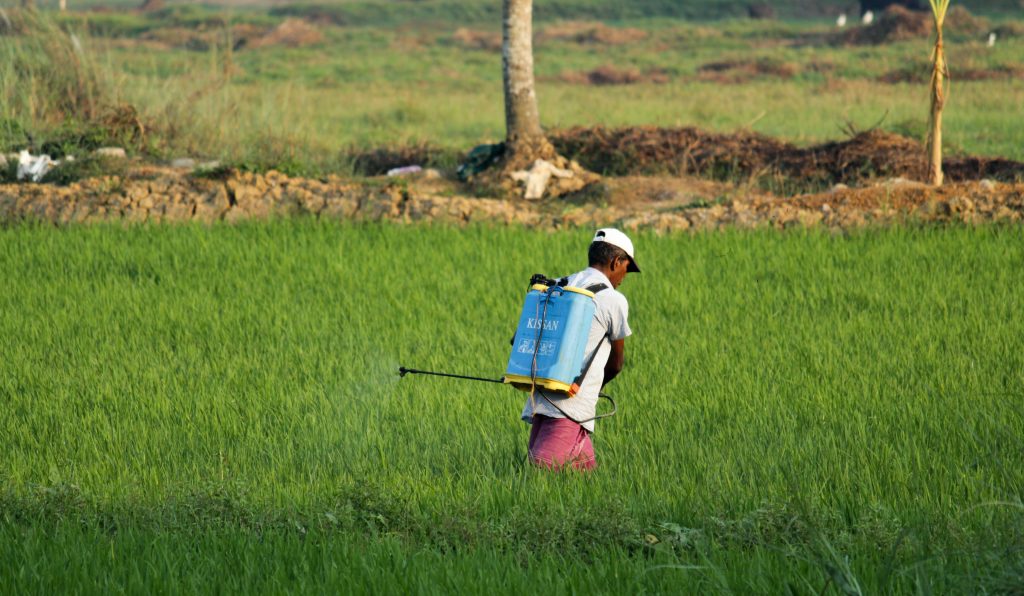The United Nations (UN) forecasts the world population to reach 9.3 billion by 2050. According to them, a 60% increase in food production will be required to sustain the population.
Solution: increasing pesticide use.

Unsplash Photo by @Arjun MJ (Ernakulam, Outdoors) Unsplash
Pesticides are chemicals that repel or kill weeds and organisms that affect plant growth.
The United States first introduced pesticides in the 1930s (during the Great Depression when the population was 2 billion) because of their considerable increase in yields. Since then, according to the World Health Organization (WHO), over 1000 types of pesticides are used globally today.
Many people stand by organic products, which use minimal pesticides. There are several reasons why people opt out of consuming products grown with pesticides:
Many synthetic pesticides cannot be broken down by humans or animals. Because of this, they bioaccumulate (simply substances that become concentrated in living organisms) as body fat.
Pesticides also pose a huge threat to aquatic ecosystems. They contaminate ground and freshwater supplies used by wildlife, livestock, crops and people.
In 2020, Boedeker et al in the BMC Public Health Journal, estimated about 385 million people annually get pesticide poisoning.
These are only three reasons why people don’t like pesticides, but there are many more.
With that said, pesticides were first introduced to solve an issue in 1930 – an issue that will soon present itself again: food shortage.
There’s an interesting theory called the Malthusian Trap, which describes how increased agricultural production as a result of advanced agricultural techniques increases the population. But with a greater population, there’s a greater need for consumption, and that strains the food supplies.
Based on a 2017 study of European farming systems, if pesticides were removed from agricultural practice, there could be a 78% loss in fruit production, a 54% decrease in vegetable harvest and a 32% loss in grain yields.
Pesticides provide greater food output, increase farmers’ earnings, improve practice, prevent diseases, and allow cultivation in areas that would otherwise be uncultivable.
Simply, they allow farmers to grow more food on less land, raising yield.
According to a 2005 study by CropLife Foundation, without fungicides in the US, fruit and vegetable yields would decrease by 50-90%. For perspective, 40.3% of Canada’s fruit is imported from the US. This is similarly the case in Mexico, South Korea, and Japan, all countries with high populations. Without pesticides, these countries would experience significant food shortages due to their reliance on the US and their pesticides.
